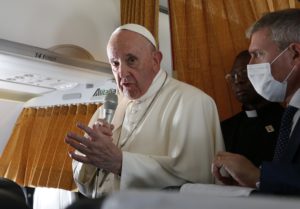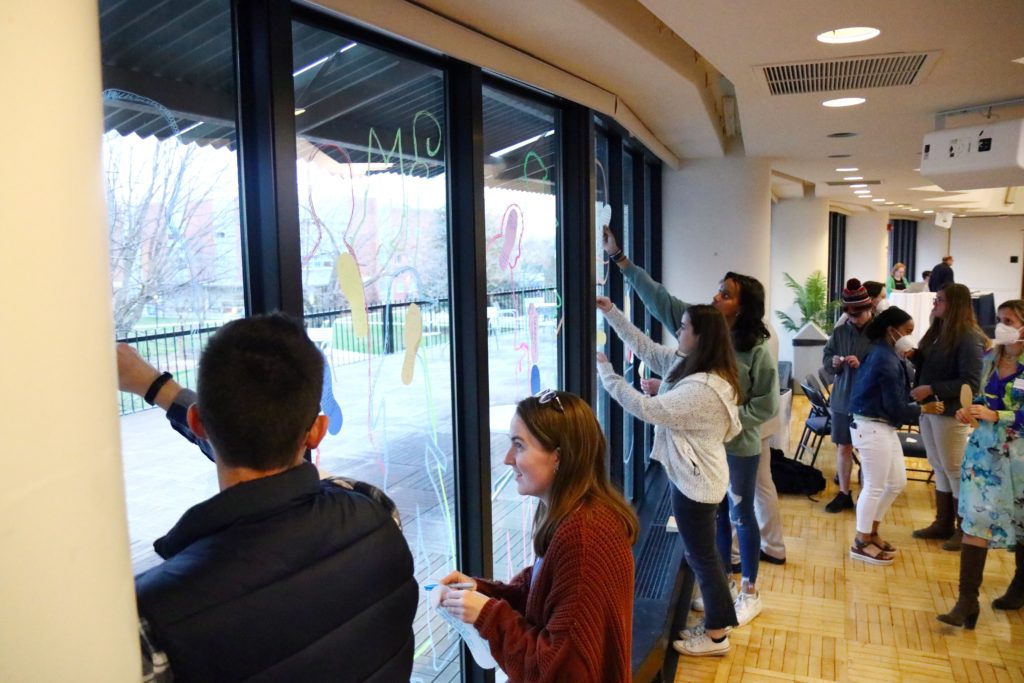A cold war over how to think about an authentic, Gospel-centered sense of inclusion has been underway in the Church since not long after Pope Francis took office. But it is now clear that with the stakes so high amid talk of changes that could result from the Synod on Synodality, it has now broken out into the open.
The debate reached new heights recently when Cardinal Robert McElroy of San Diego made the case that the synod should “touch and transform every element of our ecclesial life,” and that the Church must work toward “radical inclusion” of people who identify as part of the “LGBTQ” community.
McElroy’s essay has provoked a few public responses — most of them critical — from some of his brother bishops.
Archbishop Joseph Naumann of Kansas City, Kansas, wrote that, “Cardinal McElroy appears to believe that the Church for 2,000 years has exaggerated the importance of her sexual moral teaching, and that radical inclusion supersedes doctrinal fidelity. … In my opinion, this is a most serious and dangerous error.”
Cardinal Blase Cupich responded in his archdiocesan newspaper, Chicago Catholic, by affirming McElroy's position. “A pastoral approach that preemptively excludes someone from the life of the Church and her ministry is a serious matter and must be challenged,” he wrote. To make his point, he even cited the late Pope Benedict XVI, who wrote that “God’s passionate love for his people … a forgiving love … is so great that it turns God against himself, his love against his justice.”
But can we reconcile this position with Pope Francis’ own words that pro-choice Catholic politicians, for example, have put themselves “outside the community”? He even used the word “excommunicated”: “It’s a harsh word,” Francis said in 2021, “but they don’t belong in the community, because they were not baptized, or because they are estranged from it.”
This looks like a difficult problem, but if the issue at stake is truly about inclusion, there is a “via media” (“middle way”) available to us that could cool down this war. It comes from the example of Christ himself.

In a sense, both sides of this debate can point to things Christ said and did — but it is when they are seen together that the “via media” becomes clear. Throughout the Gospels, Jesus showed no hesitation in reaching out to the “peripheries,” in seeking out the lost, or welcoming the marginalized into our community.
But Christ, we must also acknowledge, always insisted on a radical reform of one’s heart and actions, in a total change in mentality. In other words, conversion. Yes, he protected the woman caught in adultery from being killed, but he clearly named her actions as sinful and commanded her to stop. Yes, he welcomed even tax collectors and insisted on eating with them, but Jesus never excused their sin and it is clear in Zacchaeus’ narrative, for instance, that confronting one’s own sinfulness and making restitution is a necessary part of the story.
Our Lord was able to radically include people in one sense, pastorally, while also insisting that for full inclusion there needs to be an acknowledgement of sin and desire to change. Someone who insists that adultery is fine, or that dishonestly fleecing the vulnerable to line one’s pockets is no big deal, could not be full members of a community that stands for fidelity in marriage and a preferential option for the poor.
Indeed, the radical pastoral inclusion of even unrepentant sinners is a major way those who have strayed can be brought back to the faith. Any discussion of these matters that imagines a polarized debate between, say, “total marginalization” vs. “full-inclusion-despite-anything-someone-says-or-does” is totally inadequate. We must follow the example of Our Lord by developing a culture that welcomes and includes those who are estranged from the community. But this should always include a clear, strong, pastorally sensitive invitation to name sin for what it is, with a firm intention to avoid it in the future.
Some will not be happy with this “via media” approach. For them, the issue is not about finding a way to pastorally include those they think are engaging in sinful behavior that the Church community should reject. Instead, they are arguing for the full inclusion of those who are engaging in behavior they think the Church community should accept.
That point of view — if it involves matters like adultery, exploiting the poor, or refusing to honor the connection between sex and openness to procreation — would require a fundamental change in the Church’s teaching, and would obviously require a very different kind of discussion. But if the issue is really about how the Church should balance radical inclusion with fidelity to truth, then let us make use of the “via media” Our Lord provides us to help cool down the inclusion wars.

